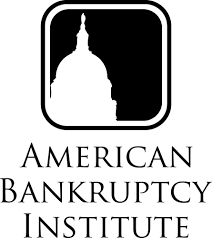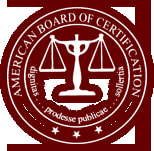|
Occasionally, well into a Chapter 13 payment plan bankruptcy, a client runs into financial trouble again. Whether due to poor budgeting, mismanagement of resources, an unexpected medical or repair expense, or the loss of a job, ongoing and regular Chapter 13 plan payments cannot be made, sometimes for months. While payments need to be made in a Chapter 13 case, there is some leeway for an interruption, but typically they can be excused retroactively as opposed to an indeterminate time in the future. For example, if you know you'll be off work, but you do not know for how long, that is not something that your current Chapter 13 can address. But if you're at the end of a layoff period in which you haven't earned any income, we can typically excuse those missed payments and tack them onto the remainder of your plan. Timing is important here; not only for the period of missed payments (which cannot exceed 3 months lest the trustee filed a motion to dismiss your case) but for the resumption of payments and the remainder of the plan. For instance, cramming 3 missed payments into one final month will be more costly than over 40 more months of payments, as one is not permitted to extend the plan period beyond me 60 months.
There are a number of issues to address with a Chapter 13 plan payment delinquency. First, would it be best to allow the case to be dismissed to address vehicle or house payments which are behind? If there's a pending motion for relief from stay, or or the car/house creditor has not been paid for a long time, one may wish to restart the entire process because doing otherwise may keep you in a case without the main reason you filed: to protect your home or car. Second, is the payment increase necessary to keep your case alive even possible for you to make? If not, you may wish to file a new case. Third, is your income sporadic/ based on self-employment, or a is it received from a full time, more stable position? The former is more difficult to use to support payments and a realistic plan going forward. Finally, many Chapter 13 participants have unrealistic expectations of what it is supposed to do. After not making payments for many months due to job loss, and unable to make payments in the foreseeable future, many clients will say 'but I thought Chapter 13 was supposed to help people'. The answer is that it DOES help people. But there are limitations. You cannot be in a Chapter 13 without regular, ongoing income, and without the ability to make payments. No amount of personal interpretation of 'help' will change that. But assuming you can make the required payments, Chapter 13 can (a) save your home (b) save your car (c) restore utilities at the time of filing (d) pay as little as zero to unsecured creditors (e) resolve tax debts (f) keep student loan creditors from collecting from you (although interest will accrue on the loans while you're in the Chapter 13 (g) keep collectors from harassing you to the extent you owed them prior to filing. If you have any other questions, feel free to contact us here.
0 Comments
|
AuthorHi! I'm American Board of Certification board-certified attorney Jesse Sweeney. I've been practicing bankruptcy for over 16 years and I thought this would be a great way to give you some insight into the process in a way that you can understand, without all the lawyer-speak that can make things confusing. Let me know if you have questions! Archives
May 2023
Categories |
 RSS Feed
RSS Feed


